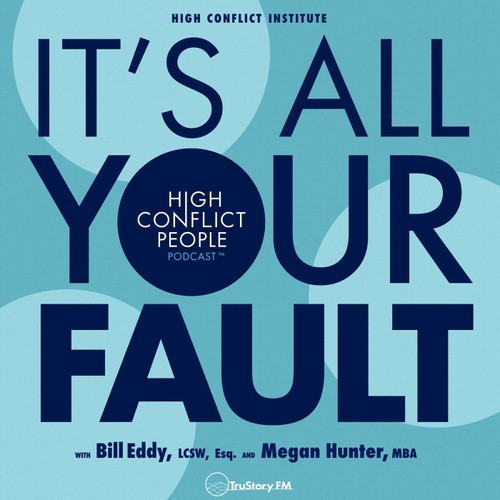
 It’s All Your Fault: High Conflict People
It’s All Your Fault: High Conflict People High Conflict People in Mediation, Emotional Triggers in BIFF Responses, and Hereditary Antisocial Personality Disorder
Apr 6, 2023
Learn about the challenges mediators face with high conflict personalities in mediation. Explore the 'new ways for mediation' method and tips for managing high conflict people. Discover how emotions can impact interactions and the importance of empathy. Understand the genetic nature of antisocial personality disorder and setting limits. Learn how to spot sociopathic behavior and engage with the podcast through questions and reviews.
AI Snips
Chapters
Transcript
Episode notes
Mediation and High-Conflict Personalities
- High-conflict personalities often struggle in mediation and may need the authority of a lawyer or judge.
- Educate clients on legal standards early in the process to manage expectations and encourage lawyer involvement for reality checks.
Managing Emotions in High-Conflict Situations
- Acknowledge emotions but shift focus to actionable solutions when working with high-conflict individuals.
- Avoid extensive emotional exploration, as it can be counterproductive, especially outside of specialized therapy.
Heritability of Antisocial Personality Disorder
- Antisocial personality disorder has a stronger hereditary link than other personality disorders, often appearing across generations.
- However, not everyone related to someone with ASPD will develop it, and healthy upbringing can mitigate genetic predispositions.
